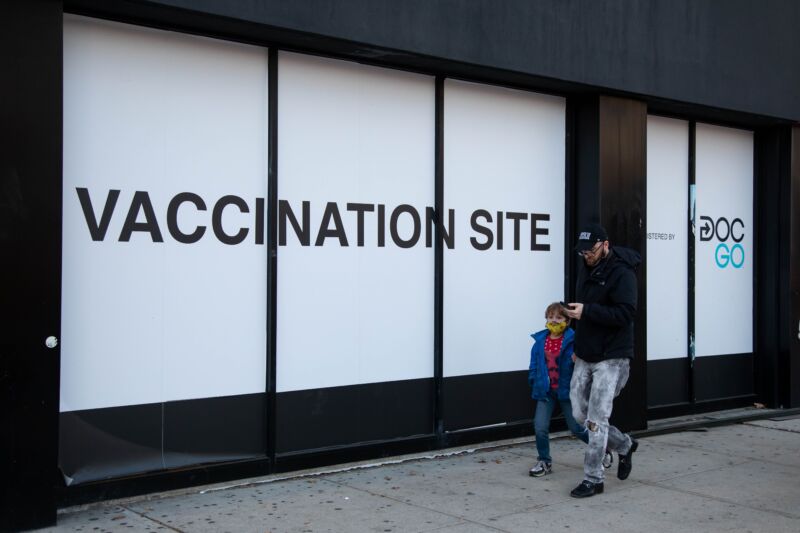The first batch of preliminary laboratory data on the omicron coronavirus variant has come out, and the results are largely what health experts have anticipated: protective antibodies from two doses of the Pfizer-BioNTech vaccine are considerably less effective at thwarting the new variant than older versions of the virus. However, antibody potency appears to rebound to fight omicron after a booster dose.
The results suggest that people who have only two doses of the mRNA vaccine may not be protected from infection but would likely remain protected from severe disease. The findings also suggest that maintaining high levels of protection against omicron will require a booster dose of the current vaccines—or even an omicron-specific shot in the future.
The top-line findings and conclusions come from three separate sets of laboratory experiments—all of which are extremely preliminary, involve small sample numbers, and have not been peer-reviewed or published in scientific journals.
Pfizer and BioNTech data
The freshest data comes from preliminary results reported online Wednesday morning by Pfizer and BioNTech. The companies conducted laboratory experiments that pitted antibodies from the blood serum of vaccinated people against a pseudovirus engineered to mimic the omicron variant. The experiments specifically measured the activity of neutralizing antibodies, which are a subset of antibodies that can bind to SARS-CoV-2 virus particles in such a way that the virus is prevented from entering human cells. Neutralizing antibodies are the most potent at preventing infection, but the immune system also produces a diverse array of other antibodies that can help fight an infection. Additionally, the immune system has protective cell-based responses that are not captured in these types of laboratory experiments.
In experiments using the blood sera of people fully vaccinated with the Pfizer-BioNTech vaccine (two doses), neutralizing antibody levels fell 25-fold against the omicron-mimicking pseudovirus compared with levels seen against a pseudovirus mimicking an older version of the virus. But when the companies looked at blood sera from fully vaccinated people one month after they received a vaccine booster shot (three doses), neutralizing antibody levels rebounded 25-fold against omicron, making them comparable to neutralizing antibody levels seen against older versions of the virus.
"Although two doses of the vaccine may still offer protection against severe disease caused by the omicron strain, it’s clear from these preliminary data that protection is improved with a third dose of our vaccine," Pfizer CEO Albert Bourla said in a statement. "Ensuring as many people as possible are fully vaccinated with the first two-dose series and a booster remains the best course of action to prevent the spread of COVID-19."
The companies also reported that they are still working on an omicron-specific vaccine dose in case it is needed. The timeline for the first batches to be available is still within 100 days from now, the companies said.



3175x175(CURRENT).thumb.jpg.b05acc060982b36f5891ba728e6d953c.jpg)

Recommended Comments
There are no comments to display.
Join the conversation
You can post now and register later. If you have an account, sign in now to post with your account.
Note: Your post will require moderator approval before it will be visible.